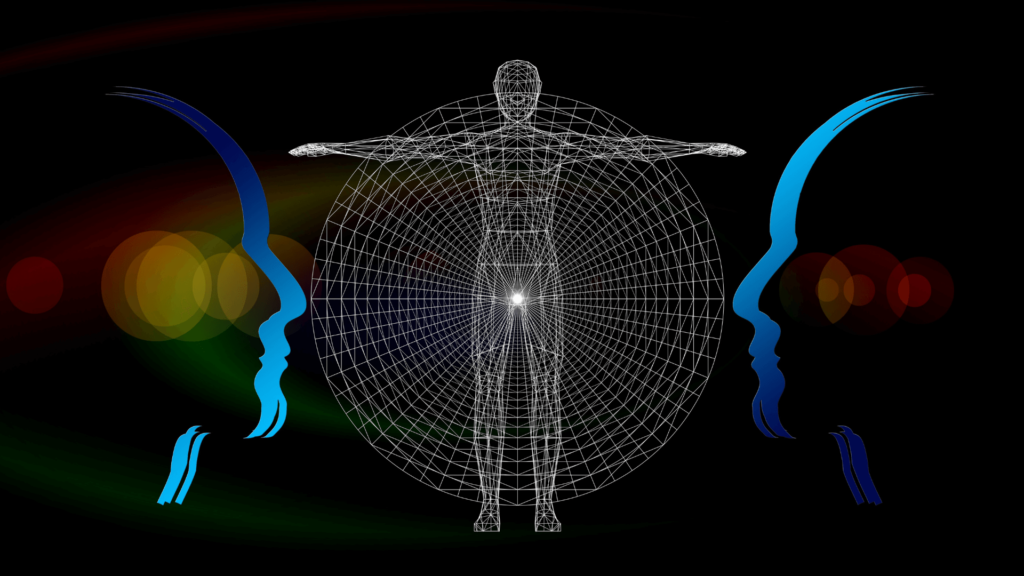Developing External Self Awareness: A Key Pillar for Personal Growth and Success

In today's fast-paced and ever-changing world, it has become increasingly important to understand ourselves not only from within but also from the perspective of others.
This is where external self-awareness plays a significant role.
By honing this crucial skill, you can unlock your true potential, enhance personal growth, and achieve greater success in various aspects of your life.
In this article, we will explore what external self-awareness is, delve into its benefits, discuss strategies for developing it, examine methods for assessing self-awareness development, and explore the current research on this topic.
So, are you ready to embark on a journey of self-discovery and unlock the power of external self-awareness?
Let's dive in!
What is External Self-Awareness?
Gaining insight into our own behavior from an external viewpoint can be an incredibly valuable asset in our journey of personal growth.
Being aware of how others perceive us and the impact of our actions on those around us encourages us to make more informed decisions and improve our interactions.
External self-awareness can help us become more socially adept and empathetic, allowing us to establish deeper connections and navigate social situations with ease.
Moreover, it provides us with a clear understanding of our own strengths and weaknesses, enabling us to craft realistic goals and pursue our full potential.
Therefore, developing external self-awareness is an essential step in the process of personal development, unlocking new possibilities and opportunities for achievement and fulfillment.
The Benefits of Developing External Self-Awareness
Uncovering our external perceptions and understanding the impact of our actions on those around us are invaluable benefits of cultivating external self-awareness. By honing our awareness, we become more adept at navigating social scenarios and attuning to the needs and perspectives of others.
This heightened insight encourages empathy and compassion, facilitating stronger relationships and better communication.
Additionally, developing external self-awareness offers us a powerful feedback loop, providing valuable opportunities for growth and development. How do we use this feedback to better ourselves and become more resilient and adaptable?
By openly accepting criticism and adjusting our approach accordingly, we can foster our leadership capabilities and inspire and motivate those around us.
Ultimately, these benefits of external self-awareness extend far beyond our personal ambitions, positively impacting our relationships, work, and overall well-being.
Strategies for Developing External Self-Awareness
Enhancing one's understanding of themselves and the environment around them is an integral part of personal growth.
To achieve this, it is important to cultivate self-awareness from an external perspective.
Here are some strategies to help individuals move toward this goal:
- Seeking feedback from others to gain valuable insights into how they are perceived.
- Engaging in reflective practices, such as journaling or self-reflection exercises, to explore patterns and tendencies.
- Broadening one's worldview by seeking out diverse experiences and perspectives.
- Cultivating empathy and active listening skills to gain a greater awareness of how one's words, actions, and behaviors impact others.
- Using tools and frameworks such as personality assessments or 360-degree feedback to gain an objective perspective.
- Engaging in regular self-assessment and goal-setting to track progress and identify areas for improvement.
- Cultivating a mindset of curiosity and openness to explore new ideas, perspectives, and experiences.
By actively pursuing these strategies, individuals can work towards developing their external self-awareness and ultimately enhance their personal growth.
By gaining a greater understanding of oneself and the world around them, individuals can make more conscious choices and adjustments in their interactions with others, fostering stronger relationships and a more positive impact on those around them.
By incorporating these strategies into their daily lives, individuals can take control of their own growth journey and achieve greater success in various aspects of their lives.
How to Assess Self-Awareness Development
Evaluating progress in the journey of personal growth and achievement is essential. To effectively assess one's advancement in self-awareness, several techniques can be deployed.
Commonly, individuals reflect and provide their own insights when engaging in self-awareness activities, which renders a subjective perception of their development.
This allows for an understanding of the effectiveness of different approaches and strategies.
Investigations into self-awareness have largely concentrated on general self-awareness, internal self-awareness, and mindfulness; however, there has been limited exploration into external self-awareness. Recognizing and understanding oneself from an external point of view is important in the process of personal growth.
By learning how we are seen by others, we can identify our strengths, weaknesses, and areas of improvement. Assessing external self-awareness can uncover blind spots and boost our capacity to manage social relationships and interactions.
It is essential to bear in mind that self-awareness is not a static state, but a continuous journey. It involves monitoring our inner and external worlds, as well as our thoughts, emotions, and behaviors.
Therefore, a comprehensive assessment of self-awareness development should take into account multiple dimensions and components, including both internal and external perspectives. This all-encompassing approach allows for a more precise evaluation of one's progress and acts as a basis for further growth.
Assessing self-awareness development is imperative not only for the advancement of personal growth but also for the attainment of success in other areas of life.
It enables individuals to respond appropriately and considerately to their feelings and thoughts, thus granting them the ability to make informed decisions and take charge of their lives.
By identifying areas for growth and development, self-awareness assessment serves as a starting point for personal development initiatives.
It furnishes individuals with the means to become proactive participants in their lives, motivating them to strive for continuous improvement and satisfy their intrinsic needs.
Research on External Self-Awareness
Exploring our perceptions of the external world is an area that has been relatively overlooked in the realm of self-improvement. Although much attention has been given to internal self-reflection and mindfulness, few studies have delved into the importance of recognizing our impact on others.
However, recent research has indicated that developing a heightened awareness of the outside world can be a crucial step for personal success and growth.
By understanding ourselves from an outside perspective, we can gain valuable insights into how our actions and behaviors affect those around us.
This can lead to improved relationships, successful communication, and a greater capacity for empathy.
Furthermore, this research on external self-awareness sheds light on its significance in various aspects of life, including leadership and decision-making.
Recent studies have suggested that individuals who possess a strong sense of external self-awareness are more likely to be successful in their personal and professional pursuits. They are better able to adapt to varying social contexts, resolve conflicts, and create solid support systems.
In addition, the research on external self-awareness has highlighted its importance for leaders.
By being conscious of how their decisions and actions are perceived by those they are leading, individuals in positions of authority can more effectively motivate and inspire their teams.
This research on external self-awareness emphasizes its potential as a powerful tool for personal achievement and growth.
Leave a Reply




Related Posts